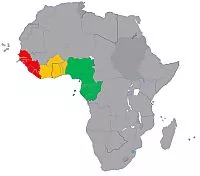Finance Minister Ken Ofori-Atta delivered his mid-year budget speech yesterday (25 July) in a radically different register than most of his presentations between 2019 and 2022. This time, he said that "this state of affairs is quite a painful one for me to report to you... This is not how we envisioned the economy... Recent challenges have overtaken us...The downside risks about which the IMF had previously warned have now materialised." His speech is preparation for a sought after IMF programme. See: Ghana's J Curve.
SIGNIFICANCE – PREAMBLE
In sum, the government has been humbled by events – in particular, 29.8% consumer price inflation, 38% producer price inflation, 3.3% year-on-year growth in Q1 2022, 22% currency depreciation between January and May 2022, 78.3% of GDP public debt, investment outflows and constrained access to international capital markets, below target revenue performance and above target expenditure partly due to interest payments. Today, the assumptions that underpinned 2019-2021 fiscal expansionism have been dramatically stripped away. See: Ghana's credit rating moment.
Ghana's strategy going forward – the Enhanced Domestic Programme – will be tied to IMF support and is still in development. However, Ken Ofori-Atta has outlined some of the priorities. For example:
- Maintaining totemic programmes like free SHS (secondary education) and the school feeding programme.
- Continuing with signature infrastructure projects like the Accra-Tema Motorway, the Tema-Mpakadan Railway line and hospitals/clinics in Western region, Upper East and the Eastern Region.
For detail, we will have to wait on the Enhanced Domestic Programme and the IMF agreement, assuming one is forthcoming. Fiscal consolidation will be its major theme. The e-levy, on which so much political capital has been spent, barely got a mention1. The extent to which roads will be paved via tolls is an open question for now. Meanwhile, emphasis goes to (a) administrative measures like digitisation of VAT revenue collection, upfront VAT payments, and (b) recognition of the extent of the problem e.g., 2022 growth forecast revised down from 5.8% to 3.7%.
OUTLOOK – CREATIVE DESTRUCTION
Two of Ghana's three principal exports are performing well – gold and hydrocarbons. Cocoa however, has been hobbled by a reduced crop. At home, households and businesses are constrained by rising costs, and the government is on an austerity footing. In such a setting, 2022 growth is expected to come in under even this revised estimate. Ghana's positive medium to long-term economic markers remain in place but in the short-term heightened economic dissatisfaction accentuates local political, regulatory, and crime and security risks. Businesses and households are responding e.g., vigilance against cybercrime. In some sectors we can expect consolidation. This includes FinTech, which has been the site of such significant commercial expansion in recent years.
Footnote
1 In June, eminence grise Gabby Otchere-Darko said on Twitter that the government had raised only GHS60 million of an expected GHS600 million.
The content of this article is intended to provide a general guide to the subject matter. Specialist advice should be sought about your specific circumstances.


